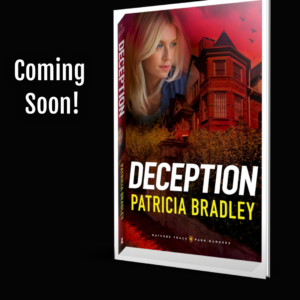by Patricia Bradley, @PTBradley1

I’ve just finished edits for a book releasing in May 2023, and I mentioned to a friend that letting Scrivener read the story to me helped catch so many typos. And she said… “You can do that in Scrivener?”
When I said yes, she asked, “What if you don’t have Scrivener?”
“Word will do the same thing.”
“You’re kidding!”
No, I wouldn’t kid about something like that. And that’s when I got the idea to do a post on the subject. It didn’t hurt that just this week, the Killzone, one of the blogs I read daily, had a post on it. (And if you haven’t discovered the Killzone, you really need to check it out. It’s a great place to learn from some of the masters of writing!
Now back to the subject at hand. There are numerous programs that will read your story to you. PCs, Macs, Chromebooks, Word, Scrivener, Google docs, and LibreOffice have it built in. Most Kindles come with the capability as well.
A Mac comes with TTS capabilities. Go to System Preferences > Dictation & Speech > Text to Speech, then select the “Speak selected text when the key is pressed” checkbox. (Click here for the complete instructions for English-speaking users.) The only two programs I know that don’t have it are WordPerfect and Open Office. There are programs available that you can try for free for two weeks, etc, but I think the built-in components mentioned above do a great job.

Now for WHY use TTS. For one thing, it helps you hear the “flow” of your story, even though the computer voice is robotic. The reason I use Scrivener for TTS is the voice is a little less robotic, but the Word voice is perfectly okay. Using TTS also lets you hear typos and skipped words.
It’s important to read along as the computer narrates the story. Otherwise, your brain might wander, and it’s a good idea to break the exercise down into short periods of time. I don’t always have the luxury of time but when I do break it down in smaller sections, I notice my brain doesn’t get as tired. Sometimes I’ll print the story out and read along, other times I’ll read along on my computer or Kindle.
TTS is really good for dialogue—stilted dialogue will scrape your ears like fingernails on a chalkboard. (I know, that’s a cliché, but it worked) Reading along as you listen gives you the opportunity of stopping the voice when something sounds clunky or you’ve skipped a word. You can fix it right then instead of trying to find it later.
If you’ve never tried TTS, give it a shot. Start out with a dialogue section, and I believe you will discover a really useful tool.
Deception, Natchez Trace Park Rangers, Book 4
When ISB Ranger Madison Thorn arrives in Natchez to investigate a white-collar scheme, she has no idea she will be thrown back into the violent crimes division–or that it will get so personal. She’ll have to work with her childhood-enemy-turned-handsome-charmer to unravel the clues before it’s too late.

Patricia Bradley is a Carol finalist and winner of an Inspirational Readers’ Choice Award in Suspense, and three anthologies that included her stories debuted on the USA Today Best Seller List. She and her two cats call Northeast Mississippi home–the South is also where she sets most of her books. Her romantic suspense novels include the Logan Point series and the Memphis Cold Case Novels. Deception, the third book in the Natchez Trace Park Rangers series, releases August 2, 2022. She is now hard at work on a new series set in the Cumberland Plateau around Chattanooga, Tennessee. Her writing workshops include American Christian Fiction Writers online courses, workshops at the Mid-South Christian Writer’s Conference, the KenTen Retreat and Scrivenings Press Author Retreat where she was also the keynote. When she has time, she likes to throw mud on a wheel and see what happens.

